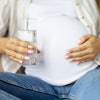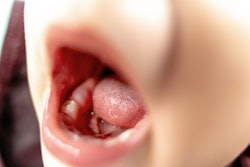Sleep bruxism (SB) in children as young as 4 may be linked to suppressing symptoms of depression and anxiety, as well as other sleep disturbances. This study was published recently in Sleep Medicine.
Early intervention for SB may positively affect children's long-term health by reducing the risk of damage to permanent teeth, the authors wrote.
“Frequent episodes of possible sleep bruxism in early childhood could represent a warning sign for the presence of internalizing symptoms,” wrote the authors, led by Christine Laganière of McGill University in Canada (Sleep Med, May 4, 2025).
The study involved 340 mother-child pairs from a longitudinal cohort. Mothers completed the Children’s Sleep Habits Questionnaire (CSHQ) when their children were 4 and 5 to assess the frequency and presence of SB, they wrote.
To evaluate anxiety and depressive symptoms in children, the study used scales for anxiety and depression from the Child Behavior Checklist. The CSHQ was also used to assess sleep disturbances, focusing on five scales related to nocturnal sleep disturbances, including bedtime resistance, sleep onset delay, sleep anxiety, night wakings, and sleep duration.
After controlling for factors like the child’s sex, time, socioeconomic status, nighttime sleep duration, and maternal depressive symptoms, more frequent SB episodes remained significantly associated with increased depressive problems (B = 0.439, p = 0.02) and anxiety problems (B = 0.682, p = 0.009), they wrote.
Additionally, frequent SB was significantly linked to more bedtime resistance (B = 0.489, p = 0.01) and sleep anxiety (B = 0.450, p = 0.002) but not to sleep onset delay, sleep duration, and night wakings.
The study, however, had limitations. Parental retrospective reports may have reported biases and may not always accurately reflect a clinical diagnosis, the authors added.
“The reported association between possible SB frequency and internalizing symptoms and sleep disturbances supports the argument for a multidisciplinary approach for children experiencing SB and internalizing symptoms,” they concluded.




















